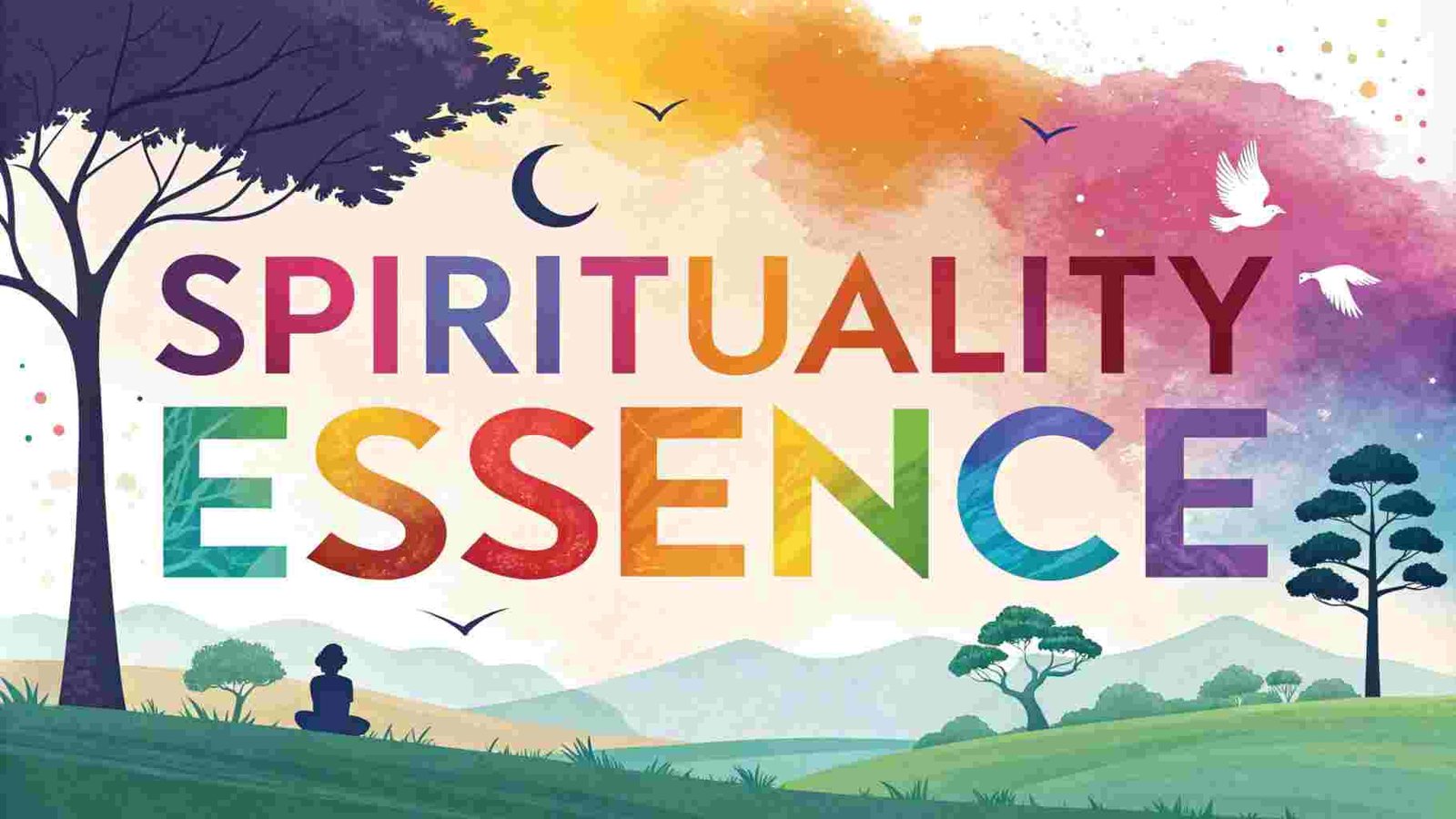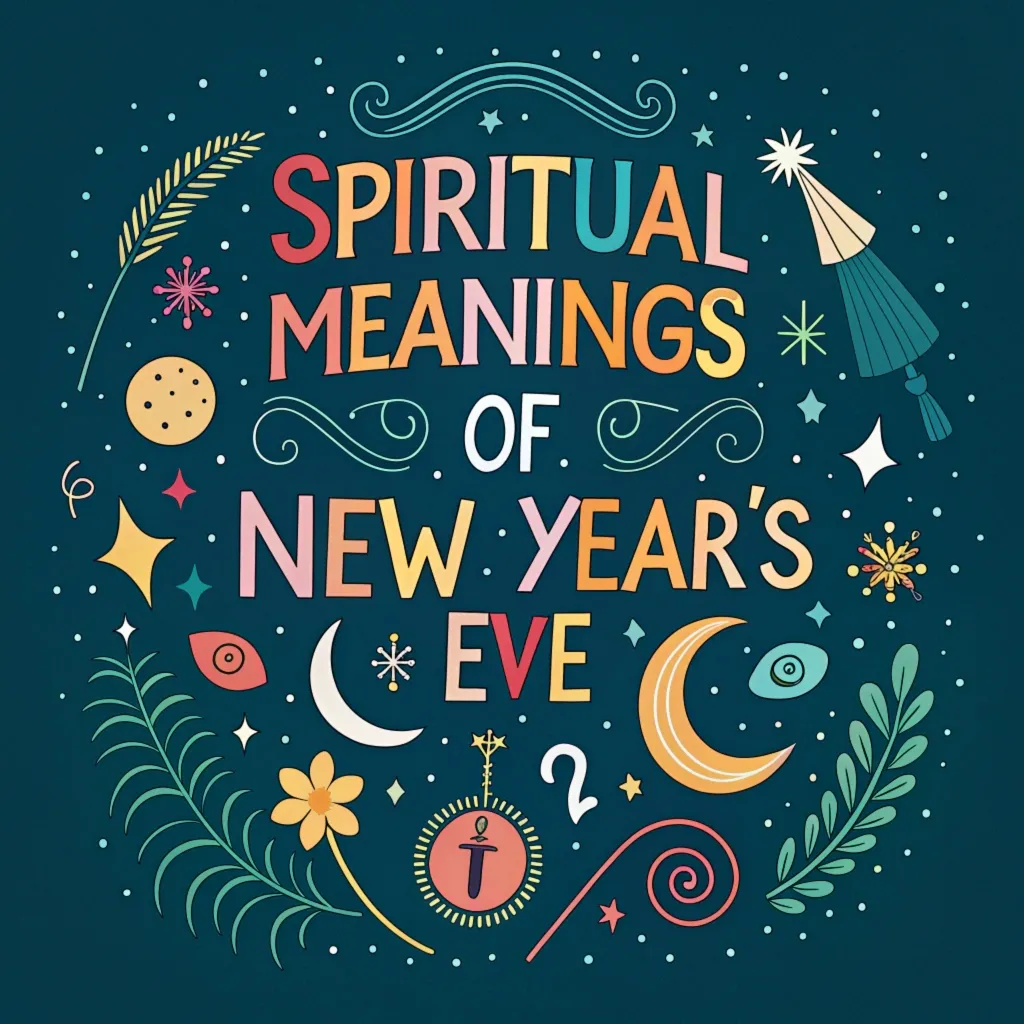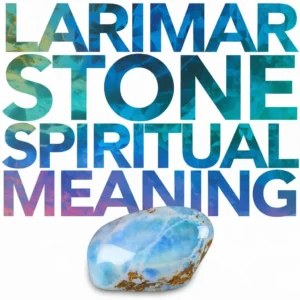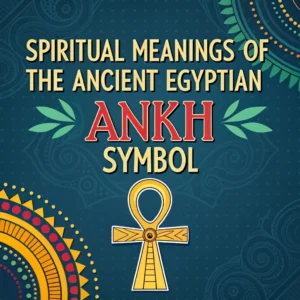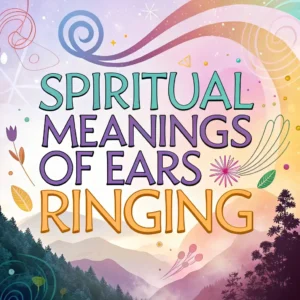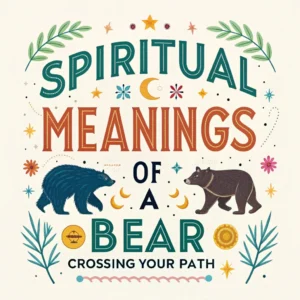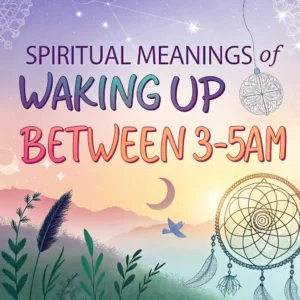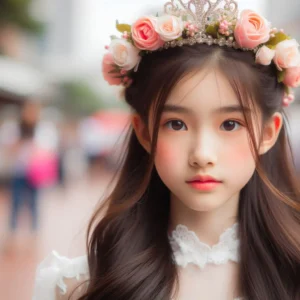New Year’s Eve is a special time when people all over the world get ready to say goodbye to the old year and welcome the new one. It’s not just about parties and fireworks. Many people see this night as a time for thinking deeply about life and making positive changes.
In this post, we’ll explore why New Year’s Eve is important in different cultures and religions. We’ll learn about fun traditions and meaningful practices that help people feel hopeful and excited for the future.
Whether you celebrate with family, friends, or by yourself, understanding the spiritual side of New Year’s Eve can make the holiday even more special. Let’s discover how people around the world find meaning in this magical night!
New Year’s Eve Spiritual Essence
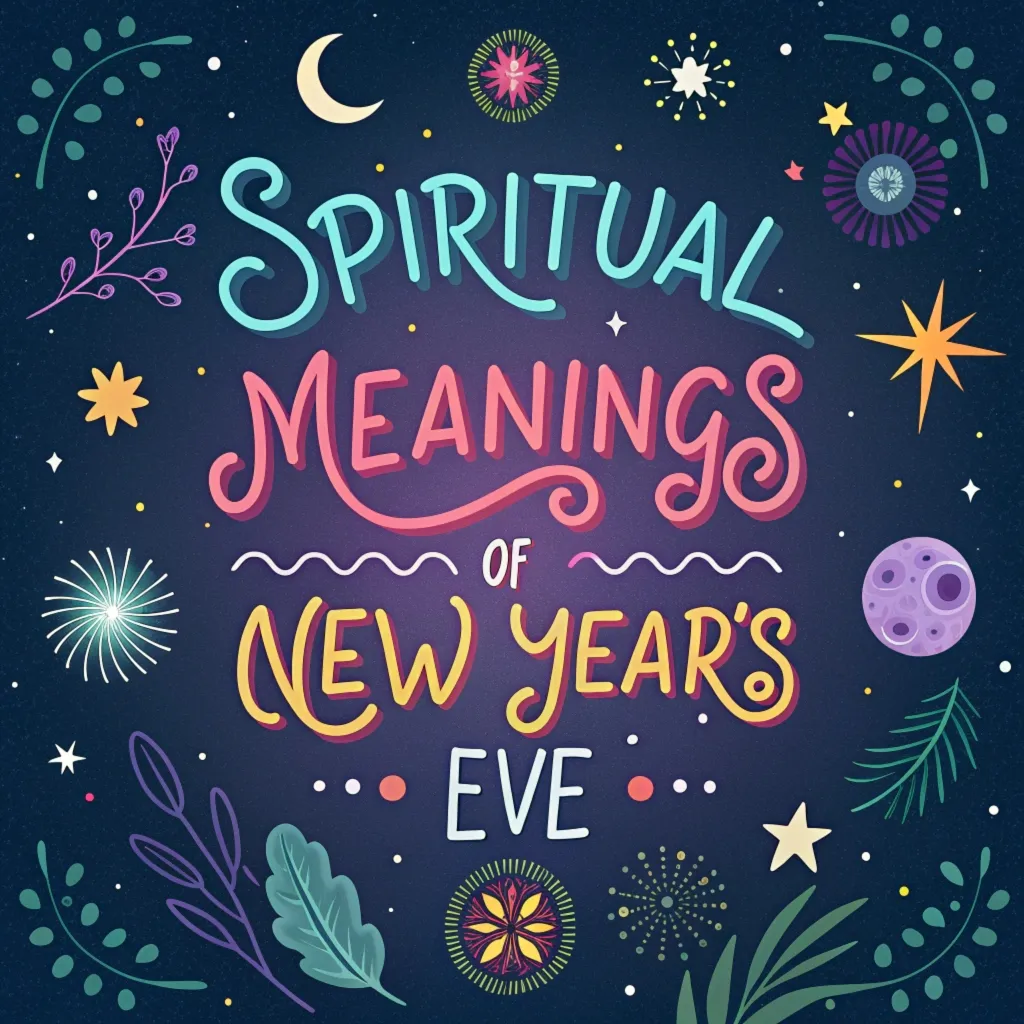
- Reflection and Release: New Year’s Eve offers a chance to reflect on the past year and release what no longer serves us.
- Renewal and Rebirth: Many traditions view this time as a spiritual rebirth, symbolizing new beginnings and fresh starts.
- Gratitude and Intention: Practicing gratitude for the past year and setting intentions for the new one are common spiritual practices.
- Connection to Nature: Some traditions emphasize aligning with natural cycles and honoring the Earth during this transition.
- Ritual and Symbolism: Various rituals and symbolic acts help people connect with the spiritual aspects of the New Year.
- Community and Unity: New Year’s Eve often brings people together, fostering a sense of unity and shared purpose.
- Inner Transformation: Many spiritual traditions see this time as an opportunity for personal growth and inner change.
- Honoring Ancestors: Some cultures use this time to connect with ancestors and honor their legacy.
- Cleansing and Purification: Rituals of cleansing, both physical and spiritual, are common in many New Year traditions.
- Hope and Optimism: The New Year symbolizes hope for a better future and the optimism to pursue it.
The Spiritual Significance of Reflection
New Year’s Eve serves as a natural pause in the flow of time, inviting us to look back on the year that has passed. This reflection holds deep spiritual meaning across many traditions.
It’s a time to evaluate our growth, acknowledge our challenges, and recognize our achievements.
In the Jewish tradition, a practice called teshuva embodies this spirit of reflection. Rabbi Sigal Brier explains that teshuva means “returning to the source and our true awareness.” This practice involves letting go of past mistakes and reconnecting with our inner selves.
New Year’s Eve is like pressing a big pause button on time. It’s a special moment when we can think about all the things that happened in the past year. This thinking is important in many religions and cultures.
It’s like looking at a big picture of our life. We can see what we did well, what was hard, and how we grew. This helps us understand ourselves better and get ready for the new year.
Rituals of Renewal and Rebirth
Many spiritual traditions view New Year’s Eve as a time of rebirth and renewal. This concept aligns with the cyclical nature of time and the changing seasons. Rituals and practices during this period often focus on cleansing and preparing for new beginnings.
In Japan, the New Year celebration, known as Shōgatsu, involves visiting local temples to exchange old lucky charms (omamori) for new ones. This practice symbolizes the renewal of spiritual protection and blessings for the coming year.
New Year’s Eve is like a fresh start for many people. It’s similar to how trees grow new leaves in spring. Many cultures have special ways to show this new beginning.
They might clean their homes, wear new clothes, or do special ceremonies. These actions help people feel ready for the new year. It’s like wiping a chalkboard clean to write new things.
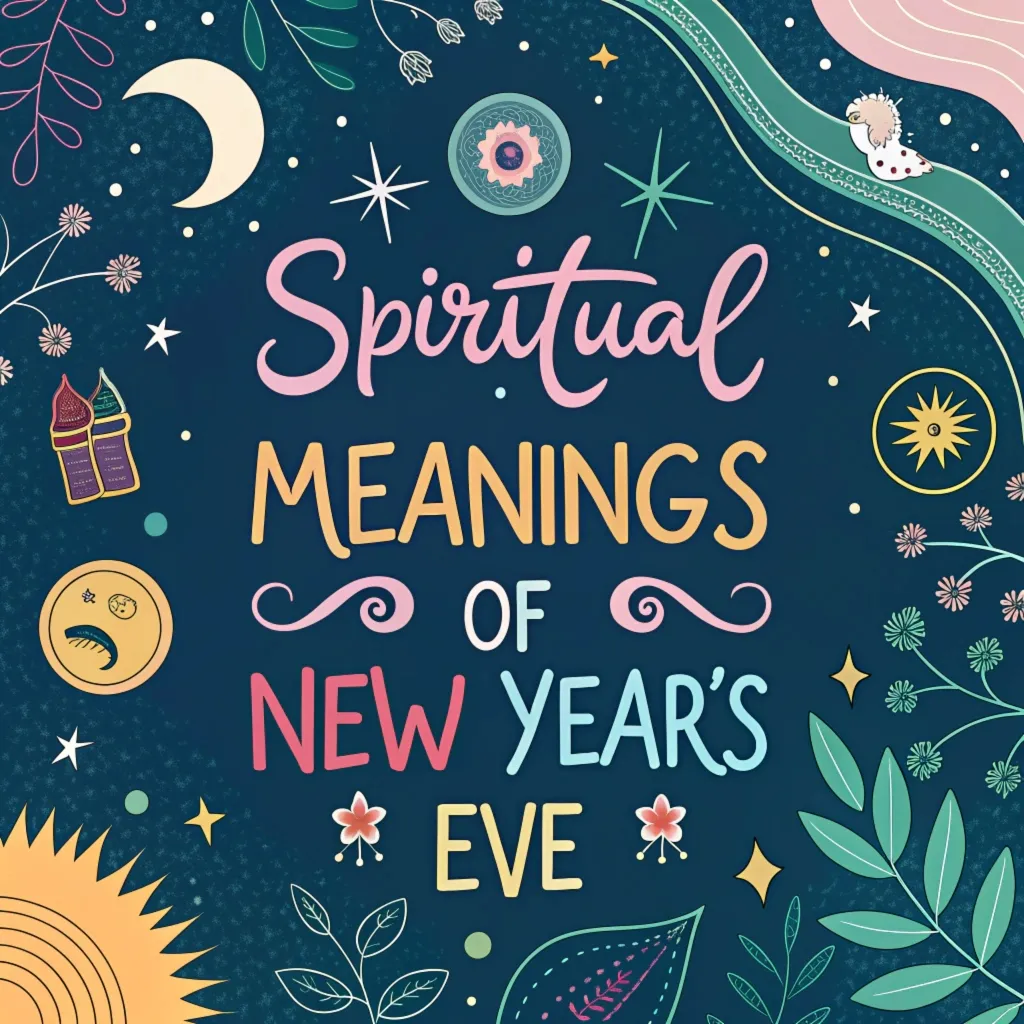
Gratitude and Intention Setting
Expressing gratitude for the blessings of the past year and setting intentions for the new one are powerful spiritual practices. These acts help shift our focus from what we lack to what we have and aspire to achieve.
A common practice is to write down gratitudes and intentions, either to keep privately or to share with loved ones. Some people choose to meditate on these thoughts as the clock strikes midnight, infusing the new year with positive energy.
On New Year’s Eve, many people take time to say “thank you” for good things that happened. They also think about what they want to do in the new year.
This is like making a wish list, but for your life. Some people write these thoughts down. Others share them with family or friends. Doing this helps people feel happy about the past and excited for the future.
Connecting with Nature and the Earth
Many spiritual New Year’s traditions emphasize our connection to the natural world. These practices remind us of our place within the greater cycles of nature and our responsibility to the Earth.
In Peru, shamanic traditions see the New Year as a time to honor Mother Earth. Ray Crist, founder of the Jaguar Path, describes rituals like the despachio, an offering of gratitude to the Earth for all it provides.
Some people celebrate New Year’s Eve by spending time in nature. They might go for a walk in the woods, watch the sunset, or look at the stars. This helps them feel connected to the world around them.
It reminds us that we are part of something big and beautiful. Some cultures have special ways to say “thank you” to the Earth for all it gives us.
Symbolic Acts and Rituals
Across cultures, symbolic acts and rituals help people connect with the spiritual aspects of the New Year. These practices often carry deep meaning and are believed to influence the coming year.
In Spain and many Latin American countries, people eat 12 grapes at midnight, one for each month of the year. Each grape represents a wish or intention for that month. This ritual combines symbolism with the act of setting intentions for the future.
Many people do special things on New Year’s Eve that have special meanings. These are called rituals. For example, some people light candles or ring bells. Others might eat special foods or wear certain colors.
These actions are like sending a message to the universe about what you want in the new year. They help people feel hopeful and excited about the future.
Community and Shared Celebration
While spiritual practices can be deeply personal, New Year’s Eve often brings people together in shared celebration. This sense of community can enhance the spiritual experience, creating a collective energy of hope and renewal.
In Scotland, the Hogmanay celebration involves the tradition of “first footing,” where people visit friends and neighbors after midnight, often bringing symbolic gifts. This practice strengthens community bonds and spreads goodwill for the new year.
New Year’s Eve is often a time when people come together. Families and friends might have parties or go to big events. In some places, whole towns or cities celebrate together.
This togetherness makes the celebration feel more special. When lots of people are happy and hopeful at the same time, it creates a strong feeling of joy and excitement for the new year.
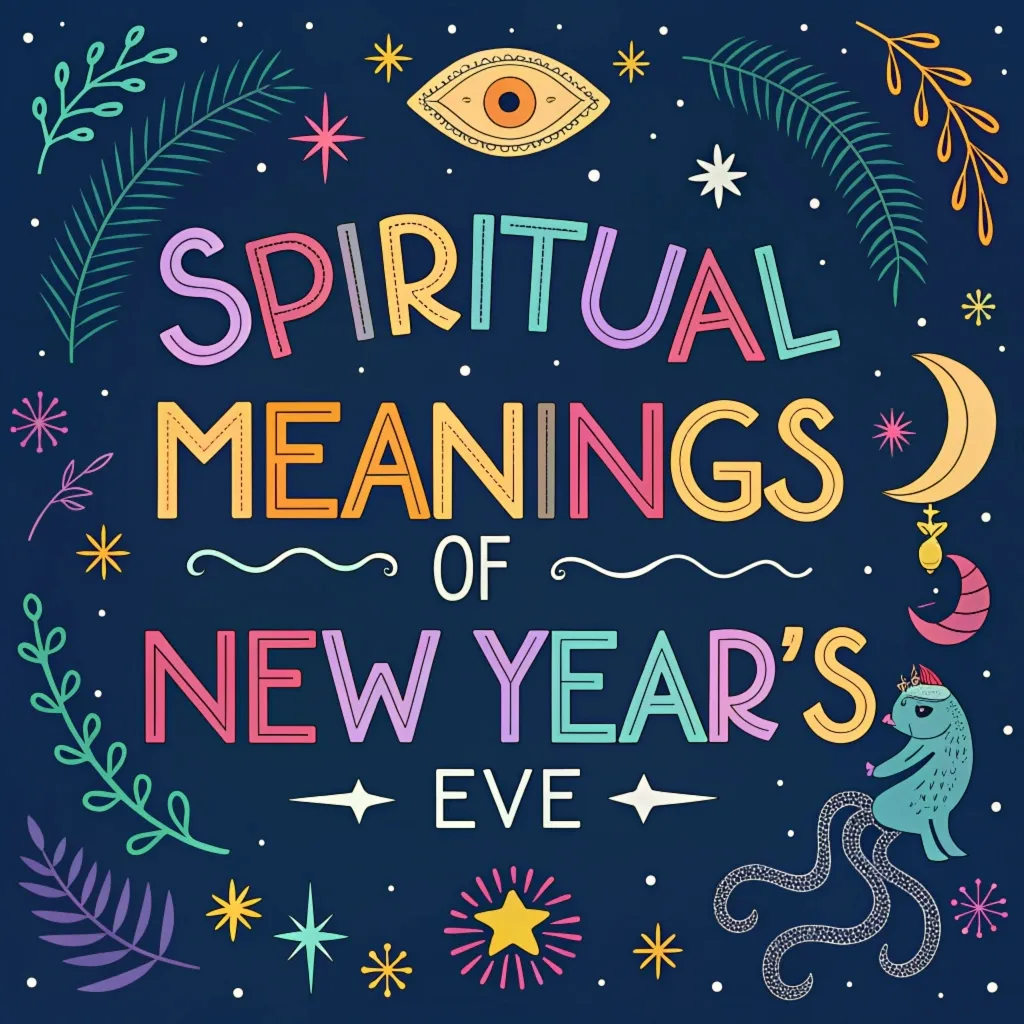
Inner Transformation and Growth
Many spiritual traditions view the New Year as an opportunity for inner transformation. It’s a time to set intentions for personal growth and to commit to positive changes in our lives.
Yoga and meditation practices often incorporate special New Year’s rituals. Shivananda Thomas Amelio explains that these practices can shift our energy on a subtle level, leading to powerful changes in our choices and actions.
The new year is like a chance to become a better version of yourself. Many people think about ways they want to grow or change. They might decide to learn something new, be kinder, or take better care of themselves.
Some people do yoga or meditation to help with this. These practices can make you feel calm and help you think clearly about what you want to do in the new year.
Honoring Ancestors and Tradition
Some cultures use the New Year period to connect with ancestors and honor their legacy. This practice helps maintain a sense of continuity and respect for tradition.
In many Asian cultures, New Year celebrations include rituals to honor ancestors, such as offering food at family altars or visiting graves. These acts strengthen family bonds and maintain a connection to cultural heritage.
In some families, New Year’s Eve is a time to remember people who lived long ago. These might be great-grandparents or even older relatives.
People might look at old photos, tell stories, or do special things to show respect. This helps families feel connected to their history. It’s like keeping old memories alive while making new ones.
Cleansing and Purification Rituals
Cleansing rituals, both physical and spiritual, are common in many New Year traditions. These practices symbolize the shedding of old energies and the preparation for new beginnings.
In Cuba, people throw buckets of water out of their front doors at midnight, symbolically washing away negative energy from the past year. This act of cleansing is believed to create space for positive experiences in the new year.
Many people like to start the new year feeling fresh and clean. Some clean their homes really well before New Year’s Eve. Others take special baths or showers. These actions are like washing away the old year to make room for the new one.
It helps people feel ready for a fresh start. Some cultures have special ways of cleaning that are meant to clear away bad feelings or memories from the past year.
Cultivating Hope and Optimism
At its core, the spiritual meaning of New Year’s Eve centers around hope and optimism for the future. It’s a time when people around the world unite in the belief that positive change is possible.
Many traditions include practices that symbolize good fortune, such as wearing specific colors or eating particular foods. In Brazil, wearing white on New Year’s Eve represents peace and harmony, while jumping over seven waves is believed to bring good luck.
New Year’s Eve is a time when people feel hopeful about the future. They believe good things can happen in the new year. This hope is like a bright light that makes everyone feel happy and excited.
People might do things they think will bring good luck, like wearing certain colors or eating special foods. These actions help people feel positive about what’s to come.
FAQs
What is the spiritual significance of midnight on New Year’s Eve?
Midnight on New Year’s Eve symbolizes the transition from old to new. Spiritually, it represents a moment of rebirth and the potential for transformation. Many traditions view this exact moment as powerful for setting intentions and releasing the past.
Are there any universal spiritual practices for New Year’s Eve?
While practices vary across cultures, some universal themes include reflection, gratitude, intention-setting, and cleansing rituals. Many people also engage in prayer or meditation as the new year begins.
How can I create a meaningful spiritual practice for New Year’s Eve?
You can create a personal ritual by combining elements that resonate with you. This might include journaling about the past year, meditating on your hopes for the future, performing a cleansing ritual, or sharing intentions with loved ones.
What does the concept of “rebirth” mean in New Year’s Eve spirituality?
The idea of rebirth in New Year’s spirituality refers to the opportunity for a fresh start. It’s about leaving behind old patterns or negativity and embracing the potential for positive change and growth in the coming year.
How do different religions approach the spiritual aspects of New Year’s Eve?
Different religions have varied approaches. Some, like Judaism, have specific rituals of reflection and renewal. Others may incorporate New Year’s Eve into existing spiritual practices or view it as a secular occasion. Many emphasize themes of gratitude, hope, and new beginnings.

Hello, I’m Zephyra, your guide at SpiritualityEssence.com. I’m passionate about uncovering life’s mysteries and sharing transformative insights. Let’s explore mindfulness, ancient rituals, and the path to a more awakened life together. Join me on this spiritual journey!
